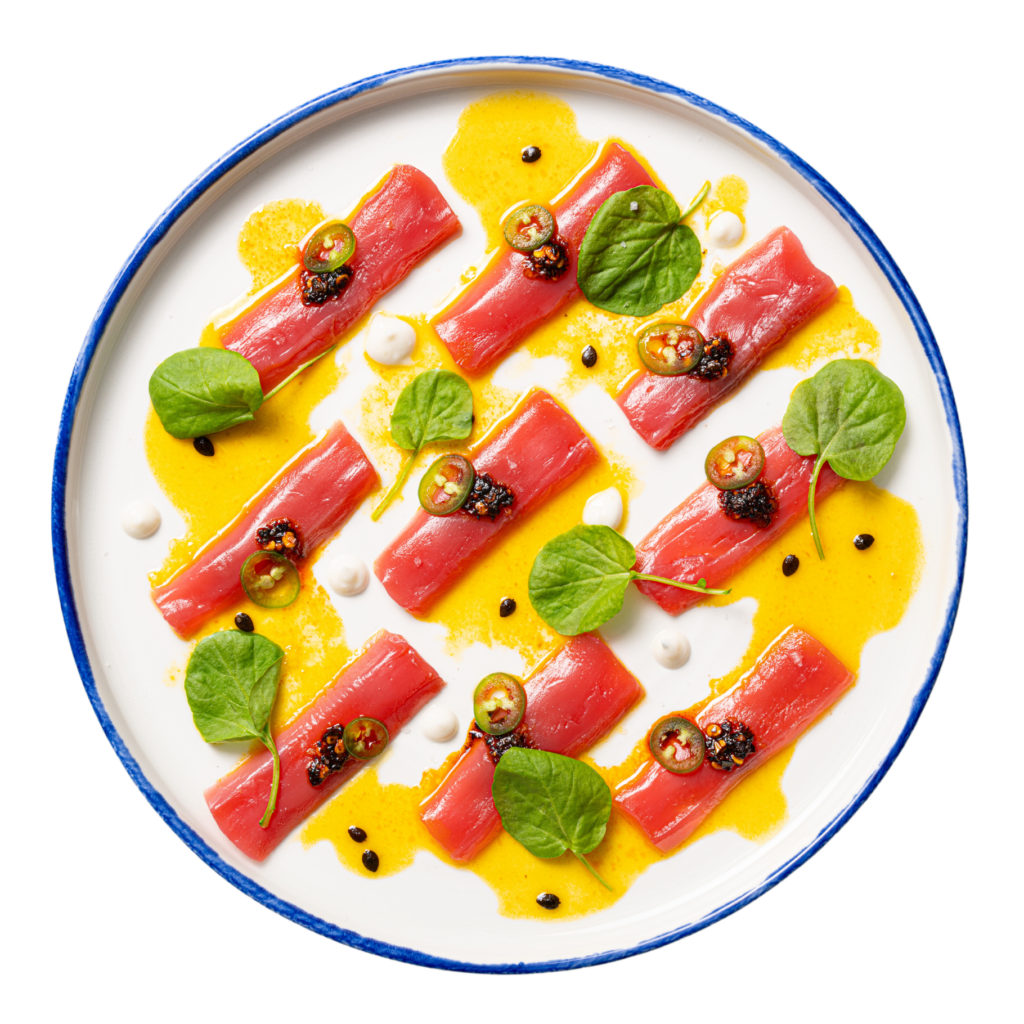By: Brittany Chibe, Co-Founder and Chief Growth Officer, Aqua Cultured Foods
I recently had the opportunity to share our founding story with Supply Change Capital, one of our investors. These reasons grow more important to us, and to the planet, every day.
It wasn’t until I donned my diving gear and explored the Great Barrier Reef in 2017 that I was aware of the impact climate change was having on our oceans.
It was that dive where I finally understood coral bleaching, which led me down a road of research to understand more. I watched Chasing Coral and became more aware of the detrimental impact of global warming on our corals and how it affects the entire ocean ecosystem.
The more I learned, the heavier it weighed on my heart as I felt lost in what I could do to make a difference.

Founding Aqua Cultured Foods
It was the summer of 2020 when everything changed. My now co-founder, Anne Palermo reached out to me and shared what she had created in her home kitchen – a sustainable alt-protein to disrupt the seafood industry.
I was completely in awe and moved by her vision: to feed the world more sustainably by offering nutrient-rich foods and complete protein sources via seafood alternatives.
So, when Anne shared with me that she wanted to bring this new product to market, I knew this was it. This is where I could make a difference. I wasn’t going to change the world with my prior company, making grain-free snacks. But, this? I knew we could make a positive global impact with this product.
I told Anne if she was serious, I’d sell my company and launch this business with her.
And, Aqua Cultured Foods was born.
Founded with the intent to feed the world more sustainably by offering nutrient-rich foods and complete protein sources via seafood alternatives, we were ready to start making change.
The need to replace seafood
Currently, 90% of wild fisheries are overfished, leaving 170 countries with unmet demand for seafood.
Moreover, global demand for seafood is expected to increase by 30%, and the population is projected to hit 10 billion by 2050.
Experts say wild seafood stocks will be completely depleted by 2048. In addition, fishing has led to other environmental catastrophes in world oceans including ecosystem damage, plastic waste and unintended bycatch.
Our oceans and coastal regions are more important than rainforests for mitigating climate change and ensuring a livable planet.
How Aqua Cultured Foods is making change
As a R&D company with a focus on commercialization, Aqua Cultured Foods has a unique position in the alt-seafood market, as well as within the fermentation sector.
Our technology and method of production deliver the “holy grail” in alt-proteins – realistic taste, texture and appearance to seafood.
Furthermore, because it’s a whole, unprocessed food, we can replicate the nutritional content of conventional seafood and add fiber. Our products are superior to seafood – there’s no cholesterol, micro-plastics, mercury or parasites.

The future of Aqua Cultured Foods
Our products will be more cost-effective to produce, and less expensive for consumers to purchase than wild-caught or farmed seafoods once production is at full-scale.
Plus, producing alternative seafood through fermentation can be done locally or regionally in appropriately equipped facilities.
In one year we plan to have alternative seafood products available to displace a portion of the $70 billion of ocean and farmed seafood consumed at restaurants in the U.S.
If we capture 5% of this market, it equates to ~50 billion pounds of sea animals saved. By reducing pressure on ocean and coastal resources, we improve ecosystems, reduce bycatch of non-target species and restore fish stocks.
We intend to be the world’s supplier of alternative seafood so that we can feed the next billion people in a nutritious, sustainable and cost-effective way, all while protecting our planet and oceans from the detrimental impact of traditional aquaculture.
Who knew diving would be the catalyst for change and my founding a part of an alt-protein seafood start-up, Aqua Cultured Foods.


